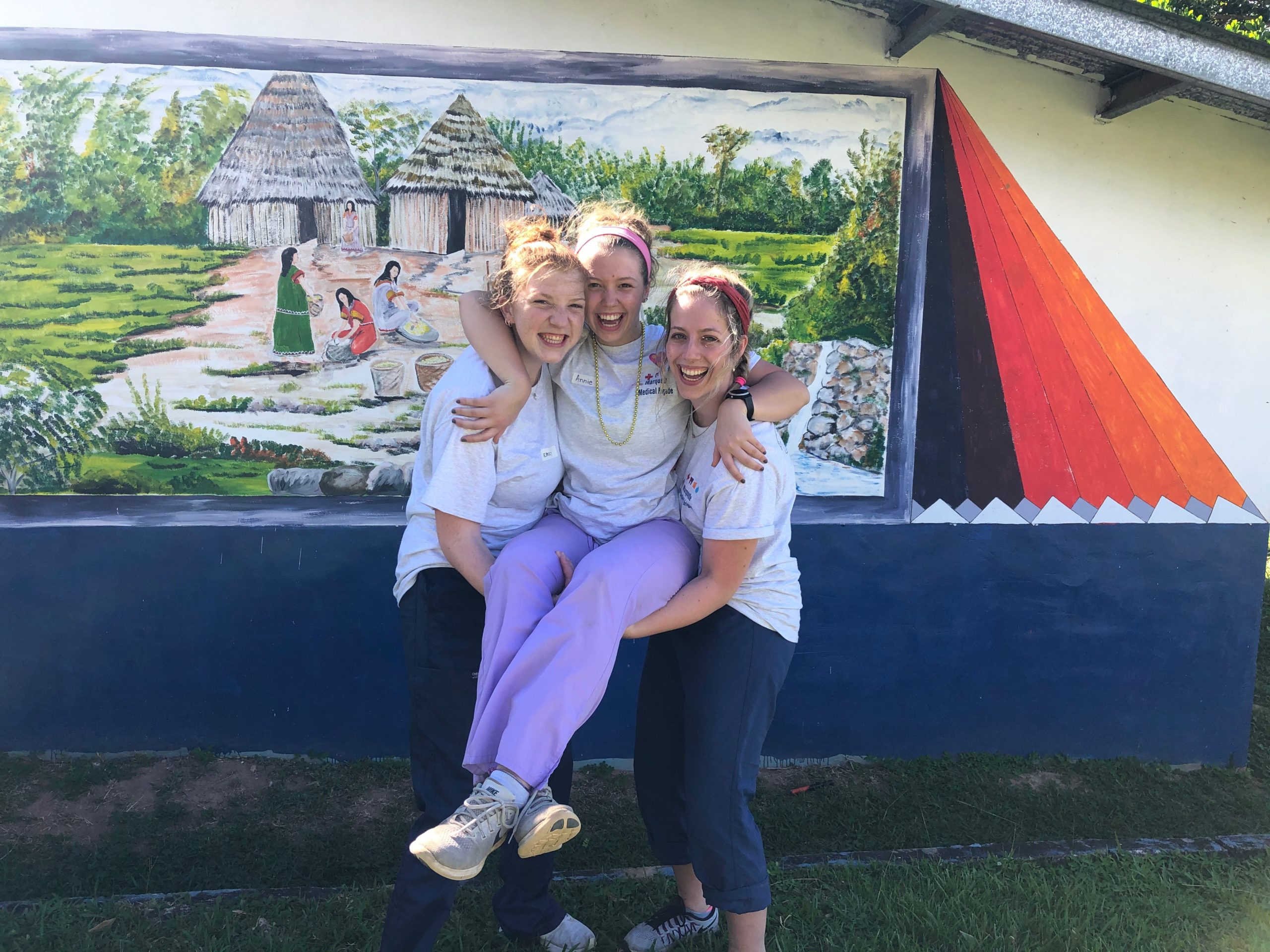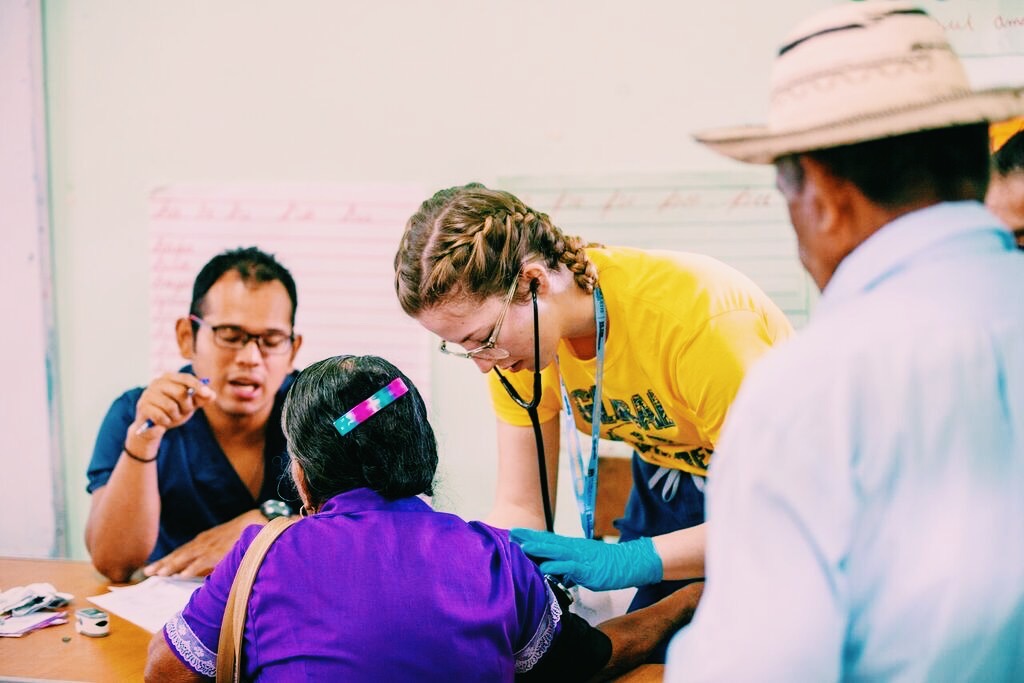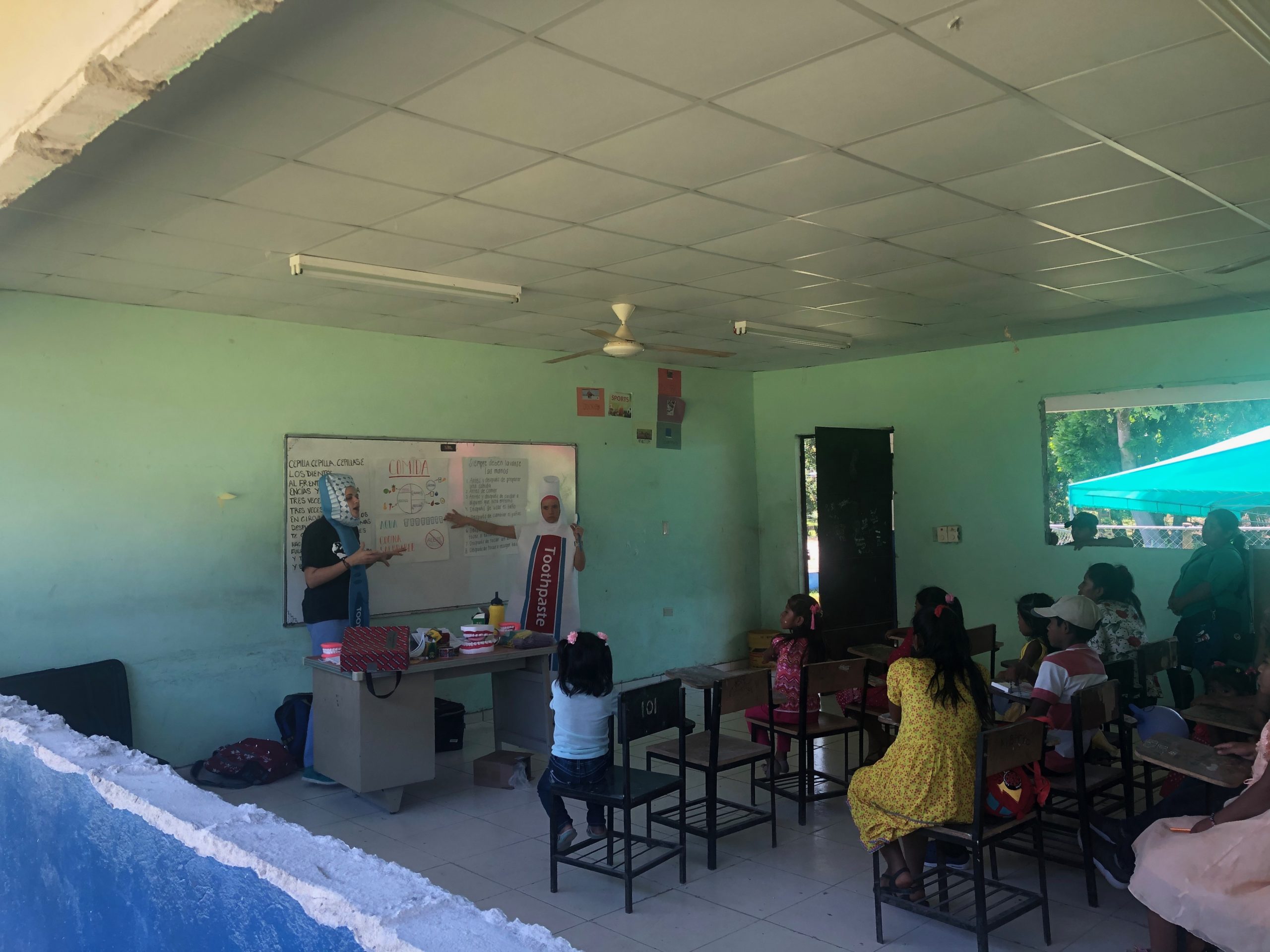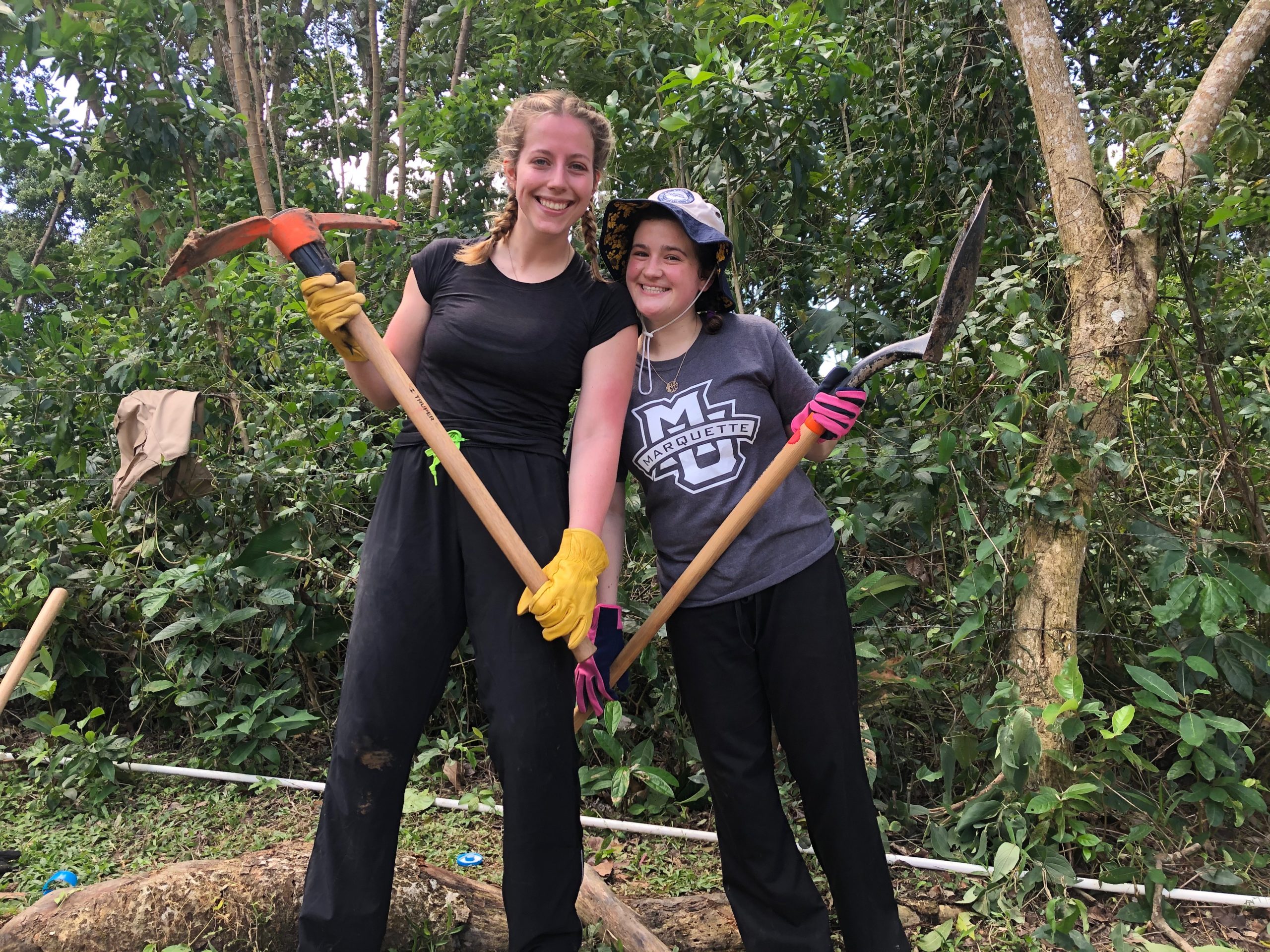
Pictured at the clinic site on the last day of their 2020 brigade are (from left) Emily Reinwald, Annie Miles and Madeline Gwinn. (Submitted photo)
While most students kick back, relax, study or vacation during college breaks, some students, such as Madeline Gwinn, devote their time to organizations like Global Brigades and work on sustainability or medical initiatives in countries such as Panama and Honduras.
Global Brigades is an international nonprofit organization and registered charity that runs programs in five countries: Greece, Panama, Honduras, Nicaragua and Ghana. Their student trips work with partner organizations and full-time Global Brigades staff in each country under a holistic perspective of community development.
Co-founded by Marquette graduate Dr. Shital Vora, Global Brigades is the largest student-funded and student-led humanitarian organization in the world.
In its 15-year history, Global Brigades has recruited 83,000-plus student participants who helped raise more than $100 million in aid. These efforts provided 1.5 million patients with medical and dental treatment, established 106 community banks that provided more than 12,000 loans, which invested nearly $700,000 in local businesses and communities. Global Brigades has also installed 56 water systems, bringing clean, drinkable water to more than 32,000 people.
Students can go on either a business, engineering or medical brigade. Gwinn recently completed her third Brigade and, due to COVID-19, it was a medical telebrigade.
“For the January 2019 brigade, (I attended) a medical/dental brigade; and for January 2020, it was a medical/dental/water brigade,” she said. “In 2019, during my freshman year, we arrived at the compound where we would be staying for the next week or so. The first thing we do once we are settled in is to organize all the medications and donations we have brought. We are each allowed only a carry-on to hold our items for the week so that our checked bag can carry the supplies needed to carry out the week in the community.”
Each brigade lasted seven to nine days and sparked Gwinn’s faith, as it gave her the desire for continued community service.
“Going to Panama, specifically, being a very religious country, I was able to talk to community members and see their faith shining through their words which, in turn, strengthened my own faith,” she said. “Each brigade brought on a new group of people and allowed me to have a different experience.”
Gwinn was more relaxed for the second brigade and said she felt more comfortable communicating with the community. Rather than worry about her lack of ability in speaking Spanish, she focused more on sitting with and being present for those she was helping.
“The first year, I think I was too worried about them not being able to understand me when in reality me having eye contact and being present was just as valuable,” she said.
Traveling to Honduras wasn’t possible this year due to COVID restrictions, so Gwinn completed her Honduran brigade through a Zoom effort in January. The brigade began with participants logging on to the various sessions to learn more about the community or to shadow a healthcare provider.
“I really enjoyed the telebrigade, as we had the opportunity to shadow more and ask questions, more than with the in-person brigade,” she said. “We reached out to the community members in roughly the same way that we would if we were in-country. Since I am not a healthcare provider myself and am just shadowing, I was able to do just that. We would ask the patients or health care provider any questions we had or simply listened and debriefed with the health care provider after or during a pause in the visit.”
Gwinn is studying biomedical sciences with a minor in public health and equity and another in health studies. She plans on integrating most of the aspects learned from the brigades into her career path. She credits Global Brigades for sparking her passion in life and focusing that passion into her career plans.
“I plan to specifically incorporate the authentic joy in service community members in partnership and creating sustainable healthcare instead of delivering the textbook derived treatment,” she said. “I was able to learn on brigade to tailor the treatment to the person, not the aliment. There were many patients that the healthcare provider recommended treatment that would not be common in the U.S., such as walking up a shallow stream for exercise or avoiding certain foods for lowering cholesterol levels.”
Gwinn plans to continue her education and work toward her masters in global health and equity, and go on to medical school. Once completed, she would like to serve communities surrounding a university hospital, focusing on internal medicine.
“There, I can be present in a community clinic a few days a week, building relationships with the community and promoting sustainable healthcare,” she said.
In the communities Gwinn traveled with Global Brigades, most of the medical issues she witnessed surrounded high blood pressure, diabetes and all over body pain due to manual labor.
“The people that we met were all around very happy and thankful for our presence,” she said. “While each visit with the patient was about 15 or so minutes, I was able to build a connection with them. This was because, even if I was only sitting with them for those few minutes, families would typically spend the entire day at the clinic while each member of their home was being taken care of.”
Gwinn’s brigade work offered her a greater appreciation for everyday transportation access and the ability to complete errands easily. She also appreciates the availability of fresh, clean drinking water.
“Every step of the way, once in country, we as brigaders did not drink tap water due to (acquiring) possible infections. I know poor water quality is common in the U.S., as I am from near Flint, Michigan, and was affected by the lead pipes a few years back,” she said. “However, seeing the energy that had to go in to make sure we had clean water, clearly showed me how much I take it for granted when I just walk over to the faucet and turn it on.”
For more information on Global Brigades, visit: https://www.globalbrigades.org.



